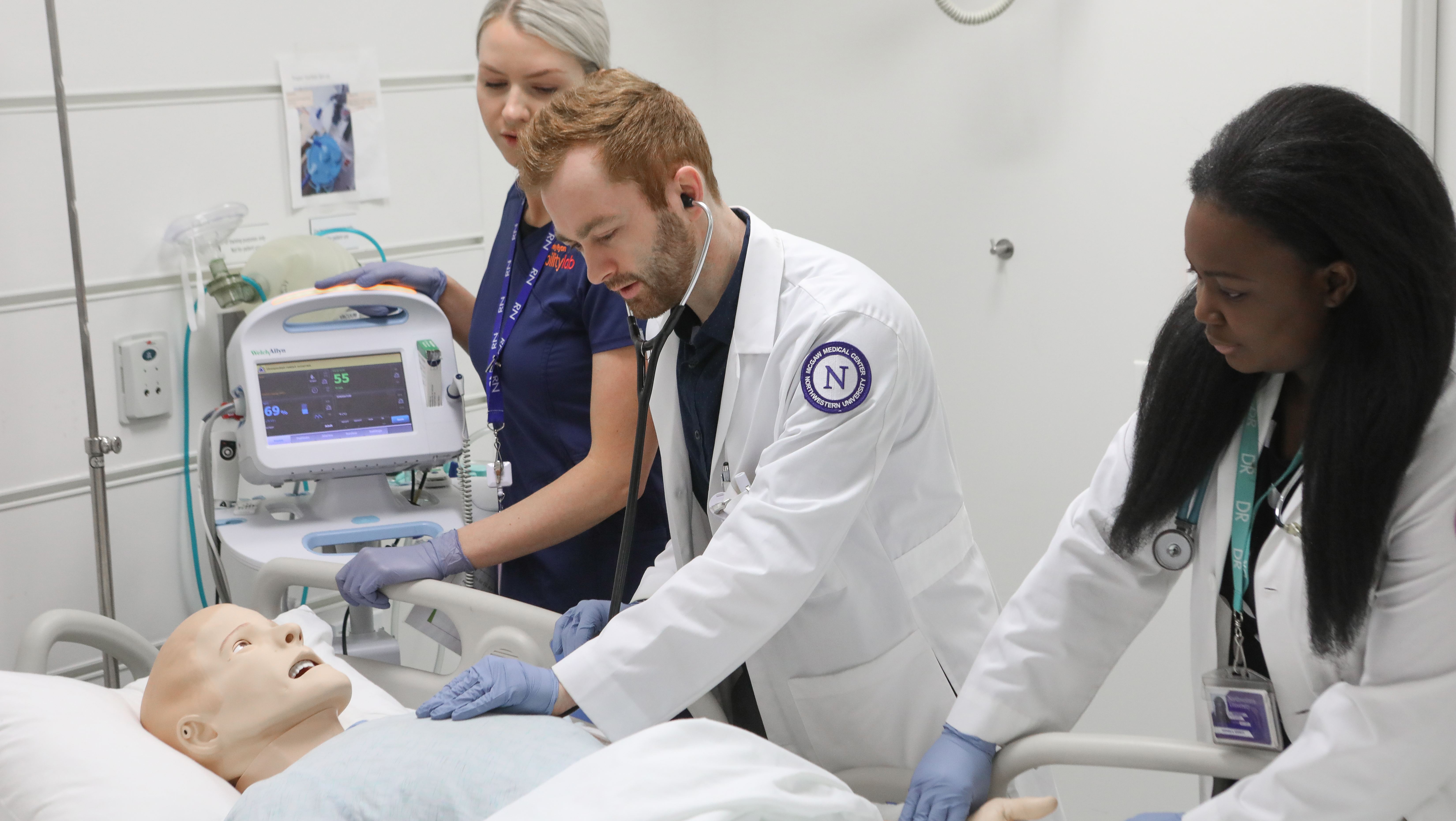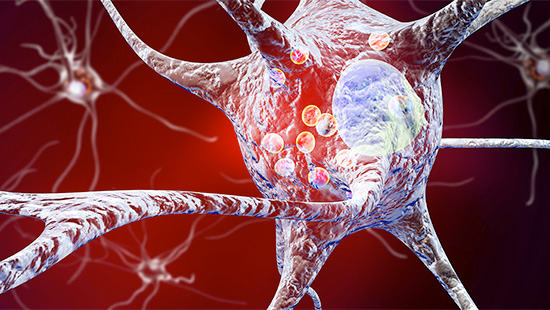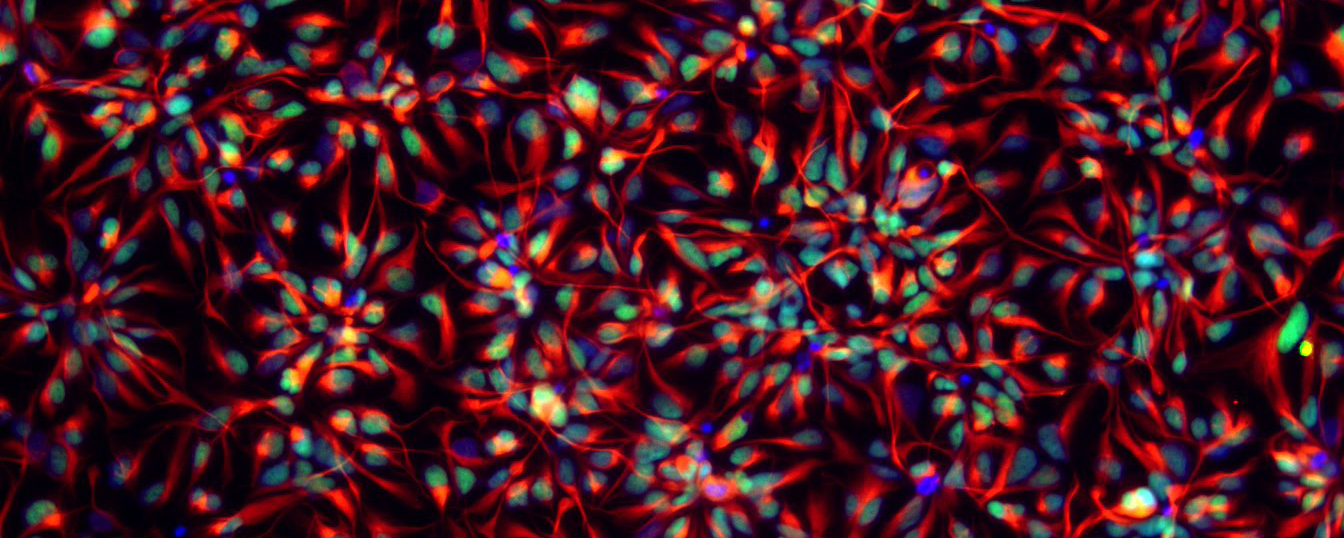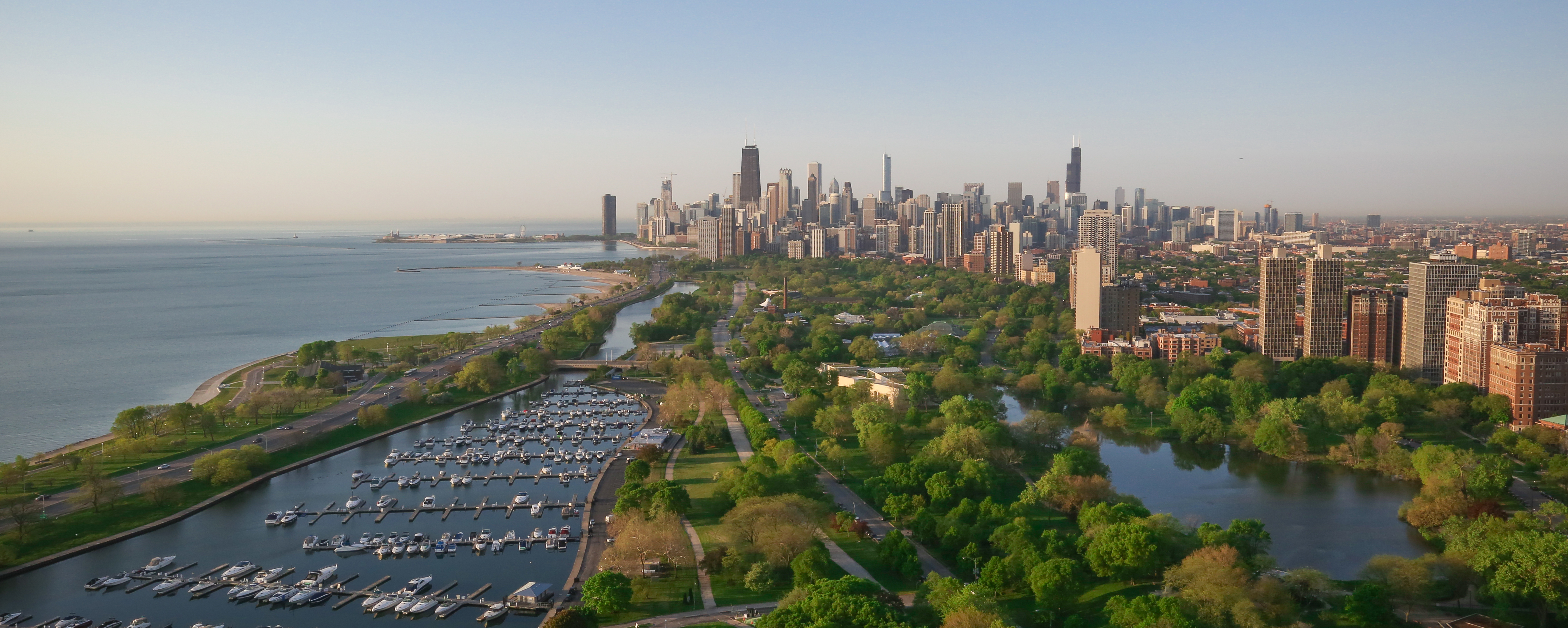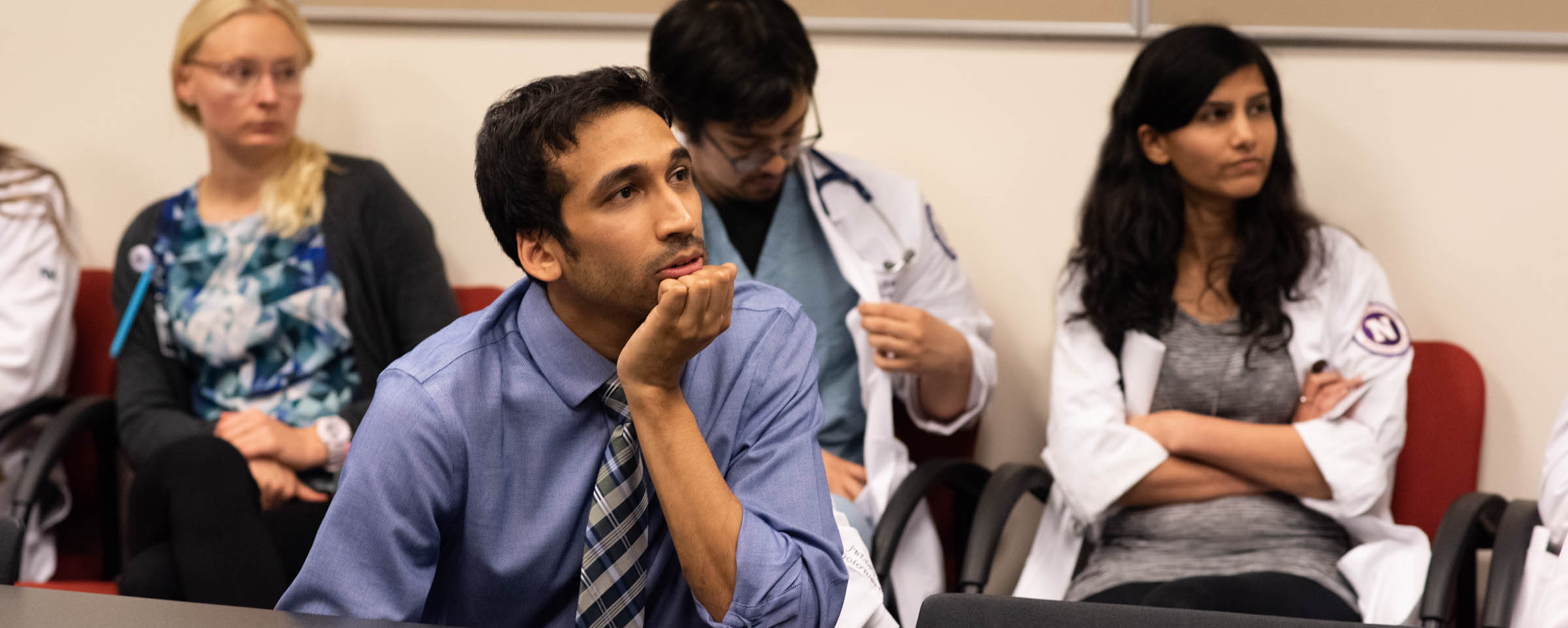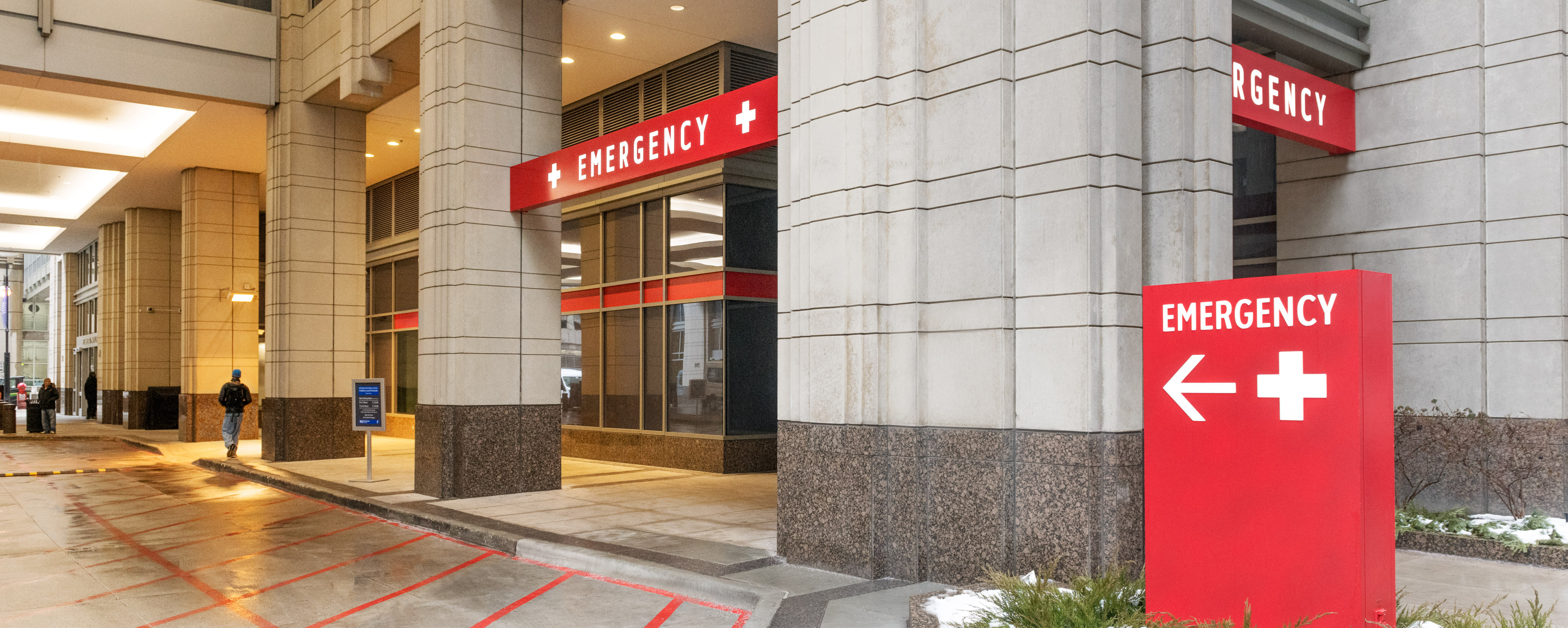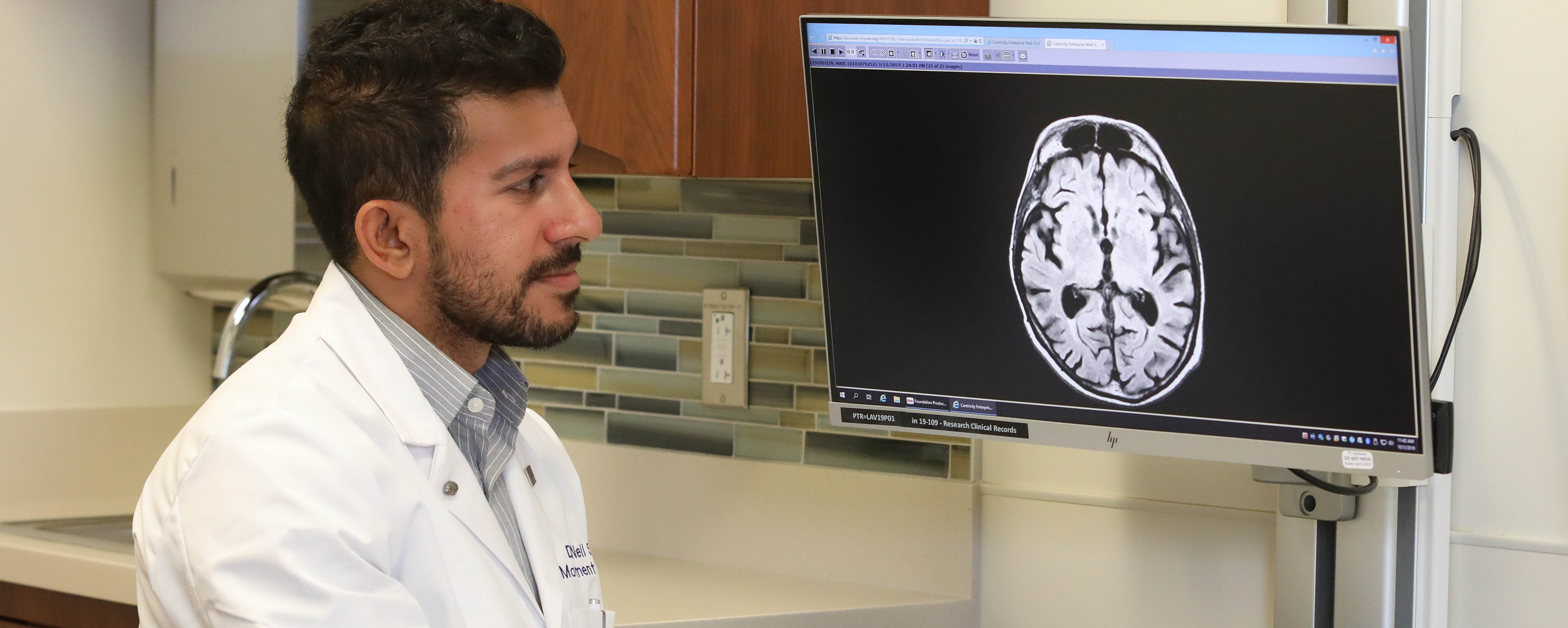Depth of Neurology Exposure
Divisions
The Ken & Ruth Davee Department of Neurology is made up of 11 divisions providing specialized training in a broad range of neurosciences. Each division has a clinical and research core in its structure. Visit our divisional pages to learn more about our faculty members' extraordinary range of expertise.
Rotation Highlights
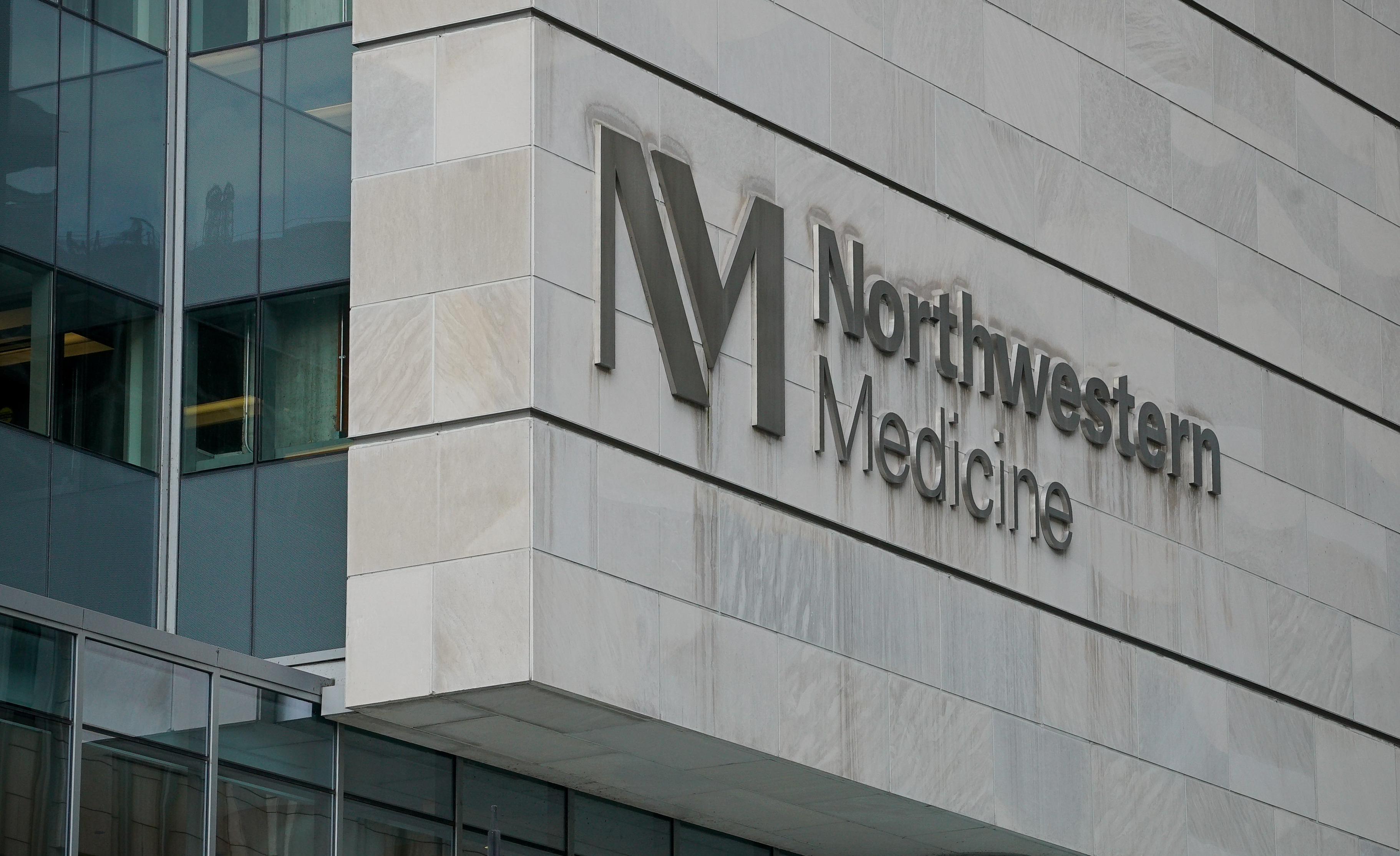
General Neurology Service
This is a busy service that cares for patients with a wide variety of neurological diseases (neuro-oncology, epilepsy, neuro-ID, etc.). The service consists of one senior resident, two junior residents, rotators (including psychiatry, PM&R, and pediatric neurology), a nurse practitioner and medical students. We see the “bread-and-butter” patients as well as the “zebras.”Neuroradiology
Residents will see a tremendous range of imaging pathology that comprises the routine workload in neuroradiology. They will develop a basic understanding of the different imaging modalities that we use (CT, MRI, myelography and angiography) and learn which modality is best suited to answer the pertinent clinical questions. We will discuss anatomy and disease processes as they appear on imaging. In exchange, residents provide important clinical insights to what radiologists are viewing on the screens. A monthly combined neurology/neuroradiology didactic conference is also a popular part of the didactic curriculum.
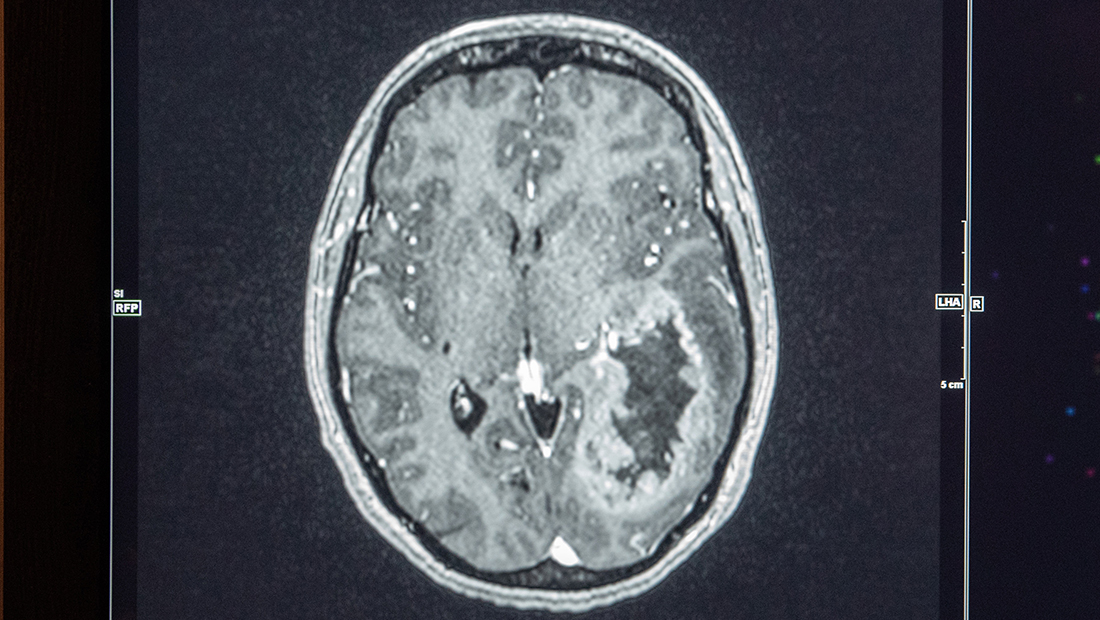
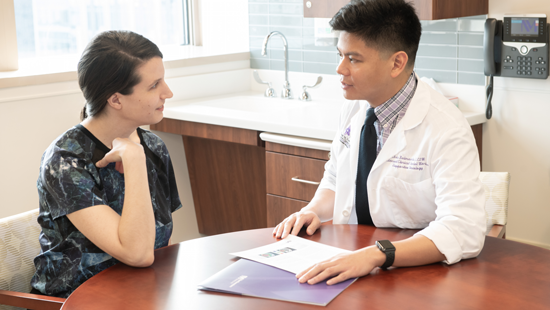
Community Free Clinic Experience
Residents in our program have the opportunity to participate in a CommunityHealth free clinic. This is a unique opportunity to work with our exceptional Neurology Department faculty in a setting that addresses health disparities and serves the community. We have an established relationship with CommunityHealth through which residents can promote neurological health in patients who have limited access to subspecialty neurological care. This opportunity fosters a connection with our home city, allowing us to advocate for and provide equitable and quality care for families across a broad range of socioeconomic and cultural backgrounds.